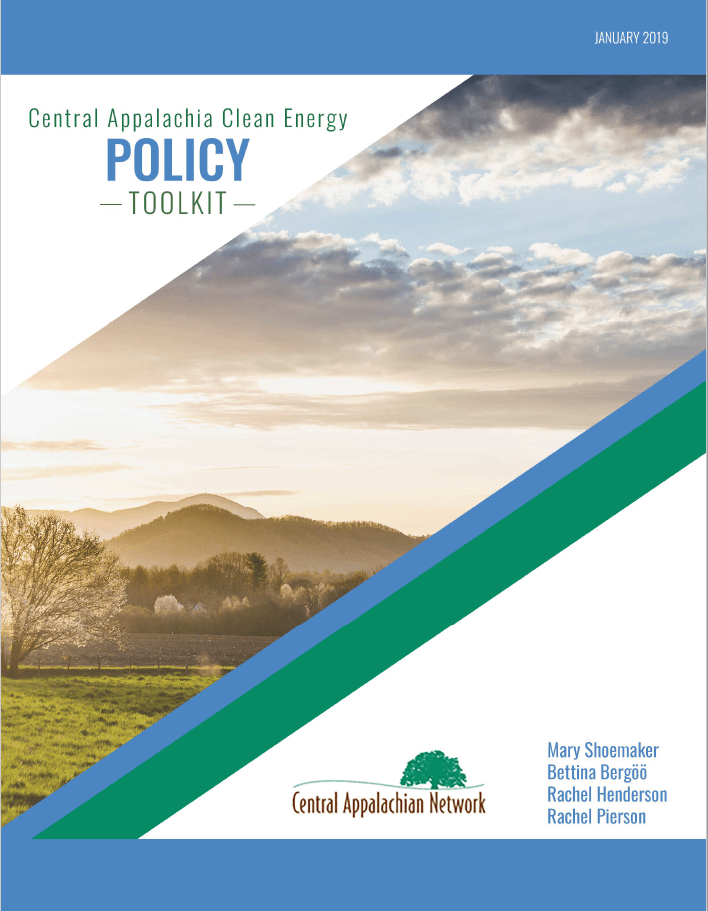
New Policy Toolkit for Expanding Central Appalachia’s Energy Leadership in the 21st Century
For over a century, Central Appalachian coal has powered America, and now the region has the opportunity to continue and expand its energy-producing legacy as part of the emerging low-carbon economy. To harness the region’s clean energy potential, policymakers, regulators, utilities, and clean energy advocates will need to collaboratively advance supportive policies that enable more projects in more communities.
CAN’s Clean Energy Practitioner Network works to identify common barriers and opportunities to growing clean energy markets across the Central Appalachia region. Recognizing the importance of an enabling policy environment for clean energy market growth, the Network commissioned researchers from the Clean Energy Leadership Institute and American Council for an Energy-Efficient Economy to develop the new Central Appalachia Clean Energy Policy Toolkit. This resource outlines a set of state-level and regional policy priorities that advocates can rally around to accelerate clean energy’s role as part of the region’s new, diversified economy.
The recommendations contained in the Toolkit are geared toward clean energy policy advocates, including the recommendation to coordinate on policy advocacy across state boundaries. Specifically, the Toolkit encourages advocates to share lessons learned from efforts to advance net energy metering laws, C-PACE policies and programs, robust utility energy efficiency programming, and access to power purchase agreements. These clean energy tools should generate local and equitable impact by including, to the extent possible, provisions related to community benefits agreements, sourcing disadvantaged business enterprises as suppliers, and enabling participation from renters and low- to moderate-income homeowners.
In addition to recommending specific clean energy policies, the Toolkit also identifies top opportunities for engaging utilities, integrating clean energy into the economic development ecosystem, growing a skilled workforce, leveraging federal resources, and coordinating efforts with labor advocates.
The successful enactment and implementation of key clean energy policies in the Toolkit will require strategic, deliberate, and diverse partnerships with policymakers, regulators, utilities, economic and workforce development officials, and labor advocates. By using the Toolkit to establish a shared clean energy vision for Central Appalachia, advocates can position clean energy as a key tool for equitable and long-term economic development in the region.
Authored by: Mary Shoemaker, Bettina Bergoo, Rachel Pierson, Rachel Henderson
